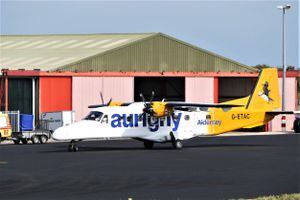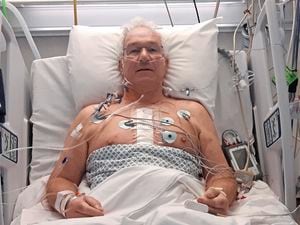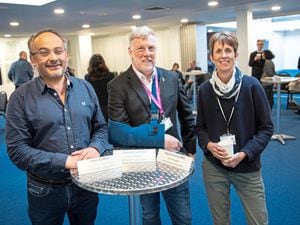‘Agreement review must not be Punch and Judy’
ANY renegotiation of the 1948 Agreement between Guernsey and Alderney must include a third party as an adjudicator, Alderney representative Steve Roberts told the States yesterday.

Mr Roberts was delivering the annual update of Alderney’s activities to members, although, as the renovation of the runway at the island’s airport runway was due to be discussed by members separately, Bailiff Sir Richard Collas, chairing the meeting, said that this would not be part of his update.
Referring to the proposed review of the agreement, Mr Roberts stressed that this would not be a simple task: ‘A quick fix will fix nothing,’ he said.
‘And if it turns into a Punch and Judy show, we’ll achieve nothing. So it’s time to open a dialogue with purpose, talk about what works well and what doesn’t. Understand each other’s perspectives and ambitions. And build on common ground.’
The island valued its relationship with Guernsey not just because of the provision of transferred services, such as the airport, but also because of its recognition of the islands’ shared heritage.
Any review would have to be sensitive to Alderney’s history, tradition, and economic needs.
But it would also need to address the future needs of both islands and the Bailiwick as a whole.
Mr Roberts also touched on the continued success of the island’s licensing regime for the online gambling industry. He said that this, along with finance and tourism, continued to be the mainstay of the island’s economy.
But he said that while the visitor economy once thrived due to reliable and affordable air links to Guernsey and the UK, the loss of direct links to Bournemouth, Jersey and other destinations had had a long-term detrimental effect.
‘Improving our air links continues to be our number one priority,’ he said. ‘There is economic potential in tourism which needs to be backed by public and private investment.’
Deputy Lyndon Trott asked Mr Roberts if the subsidies that Guernsey taxpayers had to pay every time a passenger flew from Alderney to Southampton was fair to all Bailiwick residents.
Mr Roberts said the States of Alderney did not accept these figures.
He said that his view was that Aurigny was purchased for the Bailiwick, and Alderney was part of this and taxpayers too and if the airline was bought with taxpayers’ money, he believed Aurigny did have a right to service.
‘It was bought for the Bailiwick and it can’t let part of the Bailiwick down.’
Deputy Neil Inder asked Mr Roberts if he could say why the island’s economy was not working, and Mr Roberts replied that he was in no doubt that the issue was related to connectivity – air links have been lost and air fares have gone up.
Mr Roberts’ statement also touched on the island exploring the opportunity of developing tidal power.
But while the States had set up a tidal energy group to coordinate this and a review of tidal assets and opportunities was under way, the island needed to be realistic with its expectations.
‘Tidal renewable energy is still an emerging technology and it is likely to be some years before its commercial exploitation reaches Alderney,’ said Mr Roberts. ‘But we mean to be ready when it does.’





